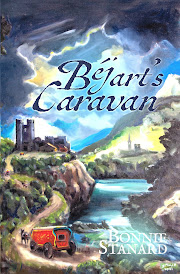 |
| Slaves brought out their best dresses for Christmas. |
Thursday, December 11, 2014
Christmas on the Plantation
AN 1857 CHRISTMAS
Holidays today are a far
cry from those of the 19th Century. Christmas occurs in three of my novels, and
I spent some time trying to find out how it was celebrated on Southern
plantations. There's no simple answer. Plantations were like small settlements governed by the owners, and they determined the Christmas customs. In most cases, the slaves were given days off from labor, oftentimes three.
TRAVEL
The whites were big on family
get-togethers. Since travel was by stagecoach, steamer, or train, when visitors
came they often stayed as much as a week or longer. The slaves were allowed
passes to leave the plantation to visit family members, as long as it wasn’t
too far. They had to walk, which they did barefoot with their shoes laced over
their shoulders to keep them from getting dirty.
FROLICS
The slaves dressed in
their Sunday best, and many women wore something in red, either sashes or head
rags or ribbons. They partied in the yard till dawn with fiddling, singing, and
dancing, sometimes described as “tearing down.” Solomon Northup wrote, “Their
legs flew like drum-sticks.” Their dancing differed decidedly from the orderly
turns and loops of the cotillions danced by the whites.
FEASTS
Feasting was eagerly
anticipated, and a common food was barbecue, which served both master and slave
but not from the same rack. Whether hogs, sheep, or oxen, the slaves butchered
the animals. They dug a ditch and filled it with wood, and when it burned down
to fiery coals, they put the carcass on a rack to simmer, usually all night.
GIFTS
Christmas morning, the
slaves stood in the yard and sang until the whites came outside and wished them
a merry Christmas. The owners might give them gifts such as extra rations
(white flour, coffee, and sugar were prized), or tobacco, an orange, apple, or cake.
Whites gave each other things such as Wistar cards, a prayer book, handkerchief
with name, or note paper and envelopes (paper was in short supply).
"SCENES OF JOYOUS MIRTH"
Bishop Henry B. Whipple
(1822-1901) wrote of “the jollity and mirth of the black population during Christmas
holidays. Never have I seen any class of people who appeared to enjoy more than
do these negroes.” This might sound like great fun, until you remember the
smoke-filled cabins with no window panes, dirt floors, inflammatory
fevers, infernal itches, pustules, threadbare clothes, wood shoes, and feces as
common as acorns on the ground. It goes without saying that the blacks with
lost family members due to the auction block must have felt a special
heartache at Christmas. Sometimes those are the very people who laugh the
loudest and play the hardest.
Subscribe to:
Post Comments (Atom)












No comments:
Post a Comment